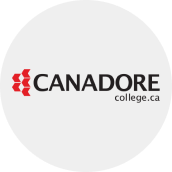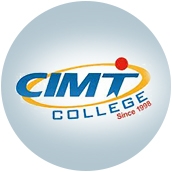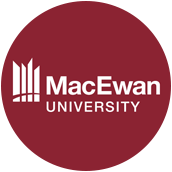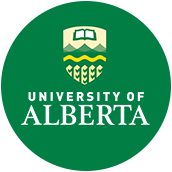Overview
Canada has introduced new regulations for international students pursuing their studies. The recent amendments involve establishing an online platform exclusively for Designated Learning Institutions (DLIs) to authenticate letters of acceptance (LOAs) provided by international students as part of their applications for student visas. CIC News, the new framework requires DLIs to authenticate LOAs on the online portal within 10 calendar days. If the letter is not verified within the given timeframe or confirmed as counterfeit, the student visa application will be canceled, and the applicant will receive a refund of the fees.
Starting December 1, 2024, Canada launched a new study permit application form (IMM1294). The IRCC stated that the new form must be used for study permit applications submitted through the IRCC secure account starting from this date. Applications using the old form after December 1, 2024, will not be accepted.
In 2024, Canada's international student program will undergo important changes. The cost-of-living requirement will increase, the 20-hour work cap for international students will be reassessed, the facilitative measure allowing time spent abroad to count towards the Post-Graduation Work Permit (PGWP) will be discontinued, and new changes will be introduced to the PGWP program.
Know Why Study in Canada
Annually, Canada opens its arms and welcomes a great number of learners from many countries. When you enroll in a Canadian school, you are investing in your future. Explore the primary reasons why Canada should be your top choice for receiving an international education!
- Top universities and colleges: The universities in Canada have a great reputation globally, and 4 of the Canada’s cities have been ranked among the 100 Best Student Cities in the World by the World University Rankings.
- Affordable Living Cost: The normal expenditure on day-to-day expenses can range from 700 to 2000 Canadian Dollars, which is equivalent to approximately Rs.41,500 - Rs.1,15,000.
- Safe place to live: It is remarkable that Canada has been consistently listed as one of the most secure nations on the planet.
- Welcoming people: Canada is known for its hospitable reputation, and this is definitely true. When you visit, you will be welcomed into a nation with diverse cultures to experience, ranging from tranquil villages to bustling metropolises.
- Easy visa policy: Canada is open to the idea of foreign students studying in their country. The immigration regulations are favorable and cities are diverse, which makes it simpler for those who wish to live there.
- Job opportunities: Canada's job market provides numerous opportunities for both citizens and people from other countries.
| Undergraduate Courses | Postgraduate Courses | Student Direct Stream (SDS) |
|---|---|---|
| IELTS score needs to be at least 6 and each band score should not be below 5.5. | Candidates must have a minimum IELTS score of 6.5 overall, and no band score should be lower than 5.5 or 6.0, depending on the institution. | The total score must be at least 6.0 and no single band can be below 6.0. |
Eligibility for International Students to Study in Canada
English language proficiency tests Requirement in Canada
How to Get Canada Student Visa?
Documents required to apply for the student permit
Requirement to Study in Canada
Scholarship to Study in Canada
Top Ranked Universities in Canada
Best Courses to Study in Canada
Intakes in Canada
Cost of living in Canada for International Students
Average Cost of living in Canada
Job in Canada for International Students
Study in Canada
Study Abroad Exam
Enquire Now
Not sure what you are looking for? Fill in the details to get a call-back.
Explore universities & colleges
Top Universities In Canada For Indian Students.

Canadore College - Stanford Mississauga Campus
Ontario, Canada • 14 Programmes
Tuition Fee : CAD 14500 - 15000 / year

Cambrian at Hanson - North York Campus
Ontario, Canada • 9 Programmes
Tuition Fee : CAD 17500 - 18000 / year

Canadian Institute of Management and Technology (CIMT) - Scarborough Campus
Ontario, Canada • 7 Programmes
Tuition Fee : CAD 11000 - 14000 / year


Georgian College - Orangeville Campus
Ontario, Canada • 7 Programmes
Tuition Fee : CAD 14000 - 14500 / year
Not sure what you qualify for?
Search for options that you are eligible for from 10s of Thousands of programs.
A-Z About admissions
A-Z of admissions, covered Pre to Post
Book a free counselling Session?
Answer a few question and receive handpicked college recommendation best for you
Study Abroud Exam
Popular English Language Proficiency Exams
Blogs and Articles
Study in Canada Blogs & Articles
Updated on • May 24,2024 04:49 PM IST • Study in Canada
Top Universities For Computer Science Courses in Canada
Updated on • May 27,2024 05:33 PM IST • Study in Canada
Increase Your PGWP Duration with 2 Years of Study in Canada
Updated on • May 22,2024 10:58 AM IST • Study in Canada
Canada Increases Off-Campus Working Hours for International Students
Updated on • May 22,2024 05:48 PM IST • Study in Canada
Student Education Loan to Study in Canada - Eligibility, Documents Required, How to Apply
Updated on • May 18,2024 03:27 PM IST • Education Loans
Teaching Courses in Canada for Indian Students
Updated on • May 17,2024 11:26 AM IST • Study in Canada
Universities in Canada for International Students
Updated on • May 14,2024 11:49 AM IST • Study in Canada
Colleges in Canada for International Students
Updated on • May 09,2024 05:17 PM IST • Colleges in Canada
Finance Courses & Universities in Canada
Updated on • May 02,2024 05:16 PM IST • Courses in Canada
Guide to Student Housing in Nova Scotia
Updated on • Mar 29,2024 10:49 AM IST • Study in Canada
Updated on • Mar 29,2024 11:47 AM IST • Study in Canada
Masters in Geology in Canada: Colleges, Courses, and Fees
Updated on • Mar 28,2024 11:32 AM IST • Study in Canada
Project Management Courses in Canada: Eligibility, Cost, Universities and more
Updated on • Mar 19,2024 03:09 PM IST • Courses in Canada
Study Loan for Canada : A Complete Guide
Updated on • Mar 18,2024 05:23 PM IST • Education Loans
Colleges in Edmonton Canada for International Students
Updated on • Mar 18,2024 04:10 PM IST • Colleges in Canada
Data Science Courses in Canada: Universities, Fees, Requirements, Scholarships, Salary and More
Updated on • Mar 02,2024 04:20 PM IST • Study in Canada
Updated on • Mar 01,2024 03:19 PM IST • Study in Canada
Master's in Management (MIM) in Canada: Universities, Eligibility, Cost, Process and more
Updated on • Mar 01,2024 12:56 PM IST • Study in Canada
MS in Sports Management in Canada: Courses, Fees and Entry Requirements
Updated on • Feb 29,2024 04:17 PM IST • Study in Canada
Master's Scholarships in Canada: Types, Top Universities, Eligibility and Process
Updated on • Feb 28,2024 11:35 AM IST • Study in Canada
Lets get your queries resolved! Session?
Got a question? Ask and discuss with 100,000+ study abroad aspirants and experts
FAQ's
FAQ's Study In Canada
How much does it cost to study in Canada?
Canada is an affordable country to study as compared to many others. You will likely need between CAD20,000 and CAD30,000 per year to cover tuition. The range is a guideline only, and the exact number will depend on your school and program. The cost of housing, food, and other living expenses will vary based on your location and personal needs.









